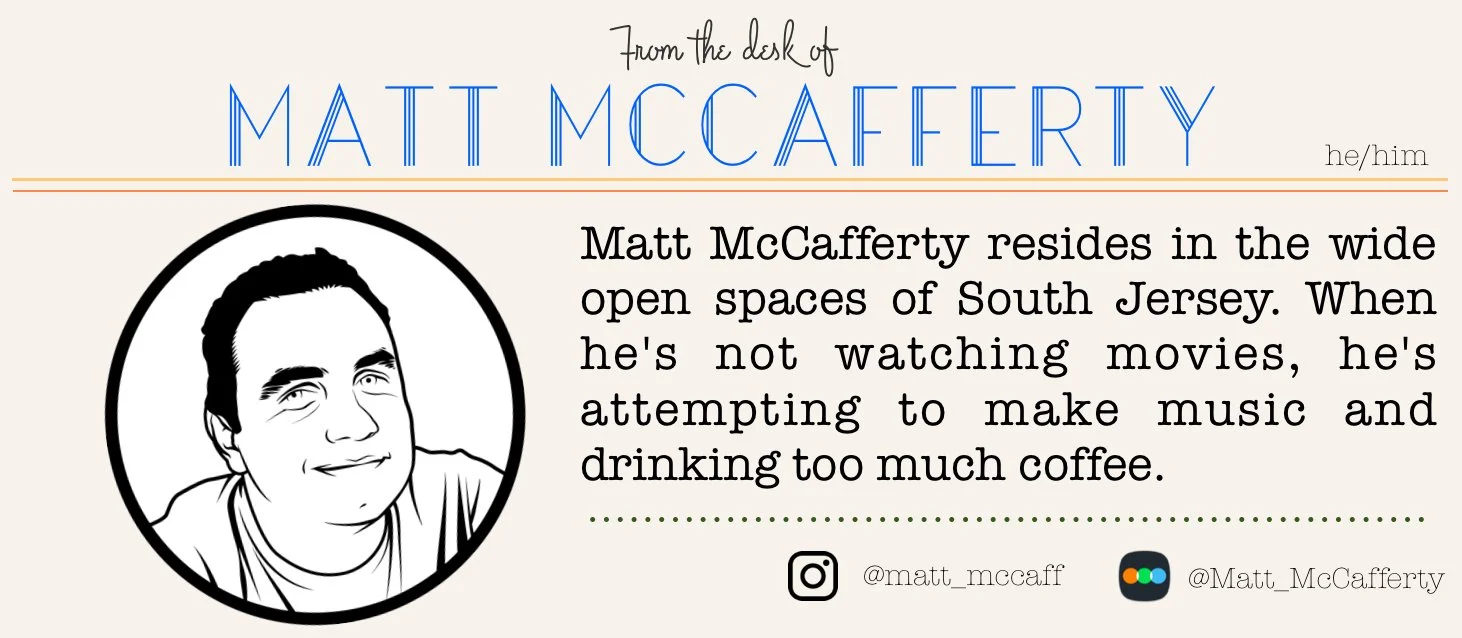PAINT struggles to find good use for its Bob Ross-inspired character
Paint
Directed and written by Brit McAdams
Starring: Owen Wilson, Michaela Watkins, Ciara Renée, and Stephen Root
Runtime: 1 hour and 36 minutes
In theaters April 7th
by Matt McCafferty, Contributor
I remember watching Bob Ross on many occasions as a kid when I visited my grandparents. I watched him on an old tube TV that only got a handful of channels. Kind of like the TVs that show up in this film…even though it takes place in the present day. Something I’ll touch on more later. As for Ross, there was something calming about the way he painted. A guy in control of his art from beginning to end. And maybe that was what drew me in. Watching a piece of art on that level go from start to finish was not something I was able to witness in many places before the internet was around. Paint is not based on the life of Ross, but it’s understandable enough that the film emulates his physical appearance and demeanor. The film leans on the real life success of Bob Ross to try and convince us that what happens in this movie is possible to some extent. Unfortunately, I didn’t buy into it all.
In Paint, Owen Wilson plays Carl Nargle, Vermont’s #1 public television painter. With his signature perm that’s nearly impossible not to fixate on, Nargle’s one-hour show is a hit across Vermont as he narrates his paintings with a soothing voice that brings peace and harmony to those who tune in. In an attempt to drive up ratings, his station brings in Ambrosia (Ciara Renée), a younger, edgier artist to fill the one-hour slot that follows his. “Painting with Ambrosia '' quickly becomes a huge hit. In contrast to Nargle’s show, which is made up of nature scenes (mostly Mount Mansfield of late), Ambrosia paints more outlandish images, such as a UFO pouring blood down onto a stump. As Nargle fights to stay relevant in the world of PBS broadcasting, he is also forced to come to terms with the relationships around him, most notably with his ex, Katherine (Michaela Watkins). She also happens to be the show’s producer.
I was looking forward to this film for a couple reasons. For one, I like Owen Wilson most of the time. He’s fine here for what he’s given with the script. His natural, warm persona fits the character well. It’s just unfortunate that so many of the jokes with him are based on the “he’s so naive” theme. Second, this looked like one of those weird little indie comedies that I tend to go for. Maybe it’s because Stephen Root shows up here as Carl’s boss, but I was hoping for something closer to Cedar Rapids. Unfortunately, we don’t get anything close to that. None of the side characters are able to provide Wilson with much needed comedic support. In Cedar Rapids, John C. Reilly, Anne Heche and Isiah Whitlock Jr. are not only funny, but they play substantial roles in the story. Each of them influences the evolution of the leading character’s (Ed Helms) arc. Everyone in Paint works around Wilson without much of a purpose other than to knock him down a peg as reality sets in that he’s not what he used to be.
You may look at this next section as nitpicking, but there’s something that bothered me about the film that I think had a lot to do with so many of the jokes falling flat for me. That is the time period it’s set in. It’s set in the modern day. There’s mention of Uber and other things to remind you of that fact. For starters, setting it this way makes it hard to believe that Carl Nargle could actually exist today. Then you see some other things that make you wonder what year we are actually in. You see a lot of people watching his show on old tube TVs like the one I watched on when I was a kid. Carl even goes around collecting newspapers from driveways to stop people from reading a negative article about himself. Sure, it’s made clear that he doesn’t know anything about technology, but come on. That joke made no sense. These are just a couple of examples of the little touches that made it seem like the movie didn’t know what time period it wanted to be in. These inconsistencies pulled me out of the movie. It tries to set up this whimsical, only-in-Vermont setting that I just couldn’t buy into. I’ll give the movie its credit for not taking itself too seriously, but this approach also didn’t do the movie any favors when it came to landing its jokes.
I hope this film finds its audience. These offbeat indie comedies aren’t for everybody; however, they do tend to find their followings among movie-goers. Getting attached to one of these weird, lighthearted comedies feels like being in a secret club that no one knows about. Coming across that random person from time to time who also loves one of these types of movies for some strange reason is always fun. Paint won’t be one I can get behind, but I hope it finds some love. My issues with it are harmless enough that I certainly won’t actively root against it finding success.


